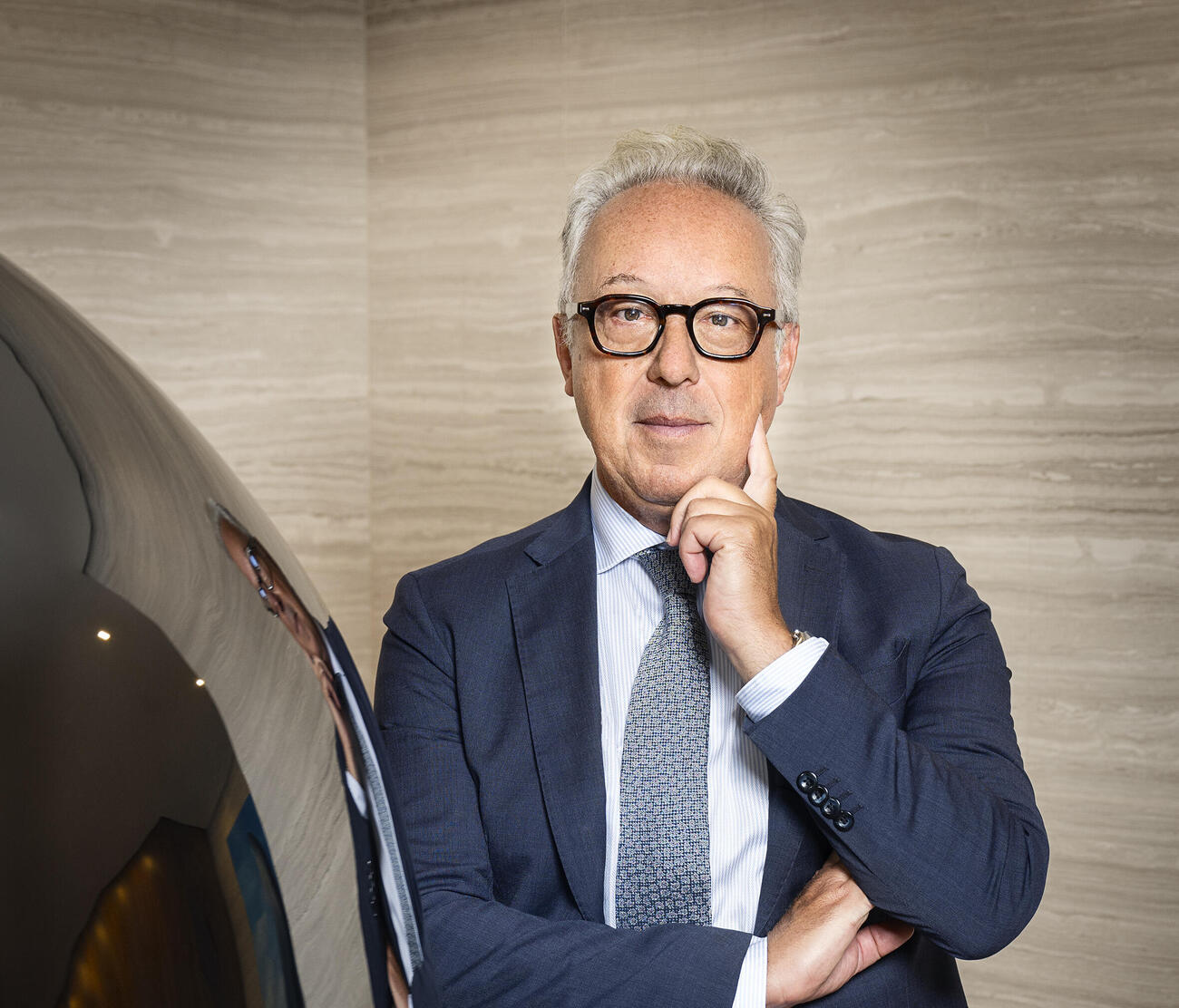When Lionel Aeschlimann speaks, words flow easily, yet never with the slightest hint of tension. He has a unique way of speeding up thought while keeping the conversation calm. Perhaps this comes from his background in law. Perhaps from the way he approaches sport, with the same sense of play he brings to his career: commitment, respect for rules, but above all, pleasure and discovery.
From his student years, the son of an entrepreneur from Biel was inspired by a deep admiration for the ideals of multilateralism. This naturally led him to study international law. His rigor as a lawyer never limited his freedom of thought. On the contrary. “Law allows you to keep your feet on the ground while reaching for the stars.” It provides structure, but it also encourages anticipating change and imagining the future. Aeschlimann is deeply committed to human rights, to culture, and to everything that helps society progress.
Trained as a lawyer, he began his career with a passion for banking law, a field that was still underdeveloped at Schellenberg Wittmer, the firm he joined and that has since become a leader in the sector. He quickly became a partner. Before long, Mirabaud, one of his clients, offered him a unique opportunity. The College of Partners, already attentive to his profile, invited him to join the Group. He became part of the executive committee, found his footing, and soon identified a key mission: to rethink how the Group’s activities were structured. That was in 2010. Two years later, Mirabaud Asset Management was born. Aeschlimann became its CEO, having already joined the very select circle of Managing Partners in 2011.
His impact was clear. He led the firm away from a geographically siloed structure and toward an organization built around business lines. Wealth management and asset management became the two pillars of the bicentennial family firm. It was a deep transformation, guided by his belief that structure shapes behavior and that leadership is stronger when it is aligned. “The partnership model is perfectly suited to a firm like Mirabaud. We are only temporary guardians of this institution, with the responsibility of passing it on to the next generations.”
In a financial world ruled by short-term thinking, this long-term vision stands out. It comes with a rare commitment to stability. “We are literally willing to pay to ensure the solidity and longevity of our House. The deposits of our clients are never invested for our own account. They are placed with the Swiss National Bank or the European Central Bank, even when interest rates were negative, or in very short-term, high-quality liquid bonds.” This reflects what matters most. “In the end we have only three fundamental assets: our name, our people, and our clients. Our interests are therefore completely aligned with theirs.”
This balance between tradition and modernity lies at the heart of his strategic vision. For Aeschlimann, respecting heritage does not mean freezing an institution in time. “You must be able to look toward the future without betraying your values or your culture.” This principle drives his desire to integrate new technologies, first in asset management and then in the banking experience, without ever sacrificing the quality of human relationships. Modernize, yes, but always with respect for personal connection, tailored advice, and the unique rhythm of each client.
It is no surprise that he has made contemporary art one of the expressions of his commitment. Art that questions, provokes, unsettles, where tradition meets the new. “These artists live in the future. They create things we do not always understand at first, but which time reveals as visionary.” In Mirabaud’s Geneva offices, the works of Shirana Shahbazi, an Iranian artist who grew up in exile in Germany, hang nearby during the interview. He looks at them with affection. “Buying a Picasso when you have a lot of money is easy. Supporting young artists, on the other hand, is a real commitment. It nurtures culture, sparks curiosity, generates discussion, stimulates thought, stirs emotion. In short, it places humanity at the center.” For him, conviction always goes hand in hand with humility. And if his vision of finance were to be summed up, it might be this: “Finance, like peace, rests on trust. It is as simple as that. And as fragile as that. Trust is everything.” A philosophical outlook, humble and forward-looking, that never loses sight of what truly matters.
Read the article published on Cote Magazine website (in French only)

